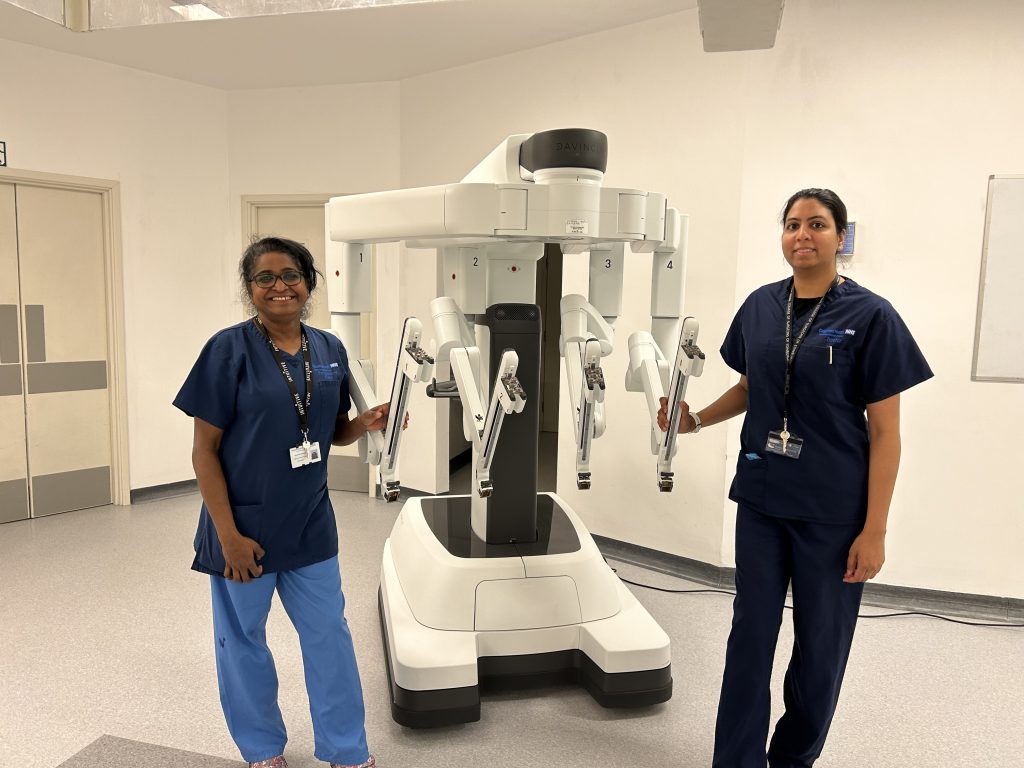In 2022 Gateshead Health invested £2m in a state of the art DaVinci Xi surgical robot to be used at the Queen Elizabeth Hospital by the surgical teams. Twelve months on, we are delighted with the success and patients are seeing the benefits too.
The surgical robot is more precise than even the most steady handed surgeon, it gives less pain, smaller scars, and lets patients recover more quickly – so they spend less time in the hospital. One patient said, “This procedure was incredible and we hope everyone who can have this robotic surgery accepts it without hesitation.”
The surgery is robotic-assisted, which means you still have the human surgeon running the show. The surgeon sits at a special console in the operating theatre that provides a high-definition, 3D view inside the patient’s body. The system translates the surgeon’s hand, wrist, and finger movements into precise, real-time movements of surgical instruments.
Oroog Ali, consultant colorectal surgeon at the Queen Elizabeth Hospital said, “It’s been over six months since we started robotic-assisted surgery, and looking back there has been a lot of hard work and team effort to make this a success. We hope we can continue to offer this service and expand it across different specialities so all patients can get access to this surgery.”
Well done to the team for all your hard work.
